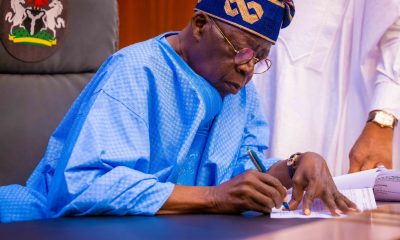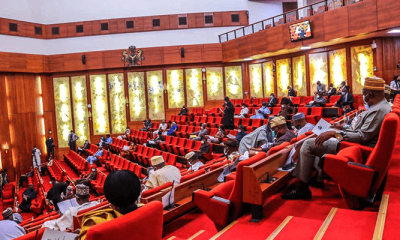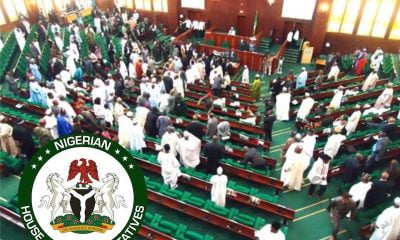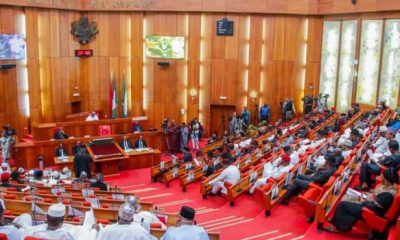Nigeria News
We’re Not Aware Of Court Case On Electoral Act – House Of Reps
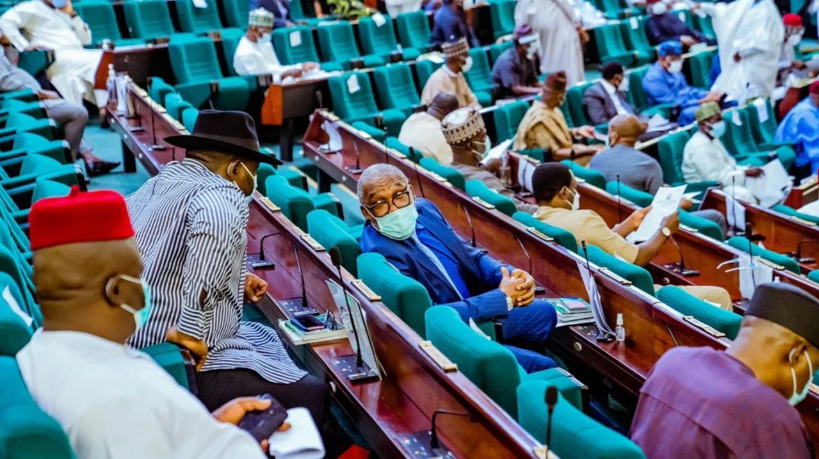
The House of Representatives has disclosed it is not aware of the court case on the Electoral Act 2022.
Recall that the Federal High Court sitting in Umahia, Abia State on Friday directed the Minister of Justice and Attorney-General of the Federation, Abubakar Malami to delete Section 84 (12) of the amended Electoral Act.
Justice Evelyn Anyadike noted that Section 84 (12) is unconstitutional, invalid, illegal, null, void and of no effect whatsoever as it cannot stand when it is in violation of the clear provisions of the constitution.
The Judge ruled that sections 66(1)(f), 107(1)(f), 137(1)(f) and 182(1)(f) of the 1999 constitution already stipulated that appointees of government seeking to contest elections were only to resign at least 30 days to the date of the election.
Reacting to the judgement, Malami in a statement signed by his media aide, Umar Gwandu, promised to comply with the court ruling and delete the section from the signed electoral act.
The minister added that the court judgment will be recognized by the Government printers in printing the Electoral Act, adding that the act will be gazetted accordingly.
Addressing reporters on Friday, Spokesperson of the House, Benjamin Kalu, said the Green Chamber was not aware of the court case and not informed that it was a party to the case.
Kalu said the lower legislative chamber is also yet to receive the certified true copy of the judgment and cannot comment on the judgment.
He said: “The House of Representatives was not aware of this legal matter, was not served and is still unaware whether we were a necessary party to this matter or not.
“It is important also to note that it is out of place to comment on a judgment we are yet to see the certified true copy. We will make comment on this judgment once we receive the certified true copy to know the length and breadth of the judgment.
“But we have read from the social media and traditional media platforms that the judgment borders on section 84(12) of the electoral act.
“We will like to know — when we get the CTC — who represented us (house of representatives), who served us, when, and all those technicalities.
“It is important also to let Nigerians know the mindset of the legislature while drafting section 84(12). The section bothers on issues affecting our intention to carry out excellent electoral reforms.”
Kalu stated that the reason Section 84 (12) was included in the Electoral Act 2022 was to address the conduct of appointees of political office holders who are used as tools during conventions and congresses.
He said the National Assembly wanted to give a level playing ground for those who have been in government not to use the undue advantage of being in government while running for an office.
He added: “As you know, for electoral reforms to be efficient, effective, transparent, accountable, inclusive, competitive, and fair, it has to be credible. And if any element of this is missing at any point — pre-election processes, election processes, post-election processes — towards achieving credible election, it affects the whole picture.
“That was why we wanted to address the conduct of appointees of political office holders who are used as tools during conventions and congresses that gives birth to who becomes a candidate in the general election or who not to be a candidate.
“We wanted to give a level playing ground for those who have been in government not to use the undue advantage of being in government while running for an office, so that they will be at par with those who are not occupying office and going for the same position.
“It has nothing to do with a public servant. I said it because I hear that many have argued that it offends the provision of the constitution on how to be qualified or disqualified for an election. That is for public servants.
“We are talking about political appointees and section 318 defines what a public servant is. It does not include political appointees. So, the ability to differentiate between these two will help us understand what the electoral act is trying to do as against what is being roped in as what it is trying to do.
“When we get the judgment, we will know whether that differentiation was clear or if it was not clear.”

